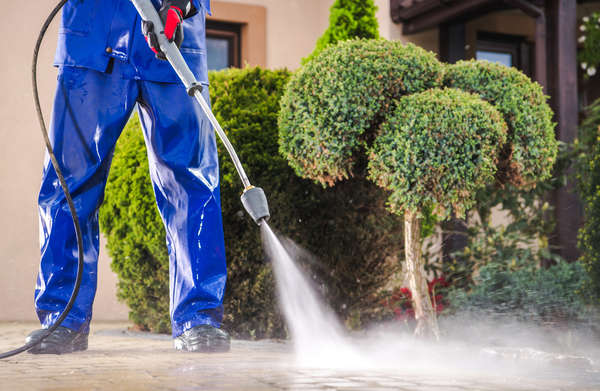We may earn revenue from the products available on this page and participate in affiliate programs. Learn More ›
Pressure washers are invaluable tools for removing graffiti, dirt, and other stuck-on debris from surfaces, but there are some situations in which these dream cleaning machines should not be used. Clearly, you’ll want avoid pressure washing things like like people, animals, and plants, but there are many surprising objects around the home—some of which you’ve probably pressure washed in the past—that can be damaged by a high-pressure supply of water.
Sensitive electrical and mechanical systems—like air conditioners and outdoor lights—can also be compromised if they’re sprayed with force. Before you begin spring cleaning with your pressure washer in tow, it’s important to know which things on your property you should wash in some other way.
1. Windows

Giving the windows a quick wash with the pressure washer may seem like a great idea, especially when you consider how difficult it can be to reach windows on the second floor, but fragile panes of glass can’t hold up to the high-pressure spray produced by the pressure washer. The stream of water is more likely to blow out the glass than clean the window, leaving you with at least one window to replace and a big mess of water and glass to clean up inside.
RELATED: Buyer’s Guide: The Best Electric Pressure Washers We Tested This Year
2. Electric Meters

Electric meters typically have a solid metal casing and a transparent glass or plastic cover over the face of the meter. While the casing keeps the meter safe from rain, sleet, and snow, it can be vulnerable to the high-pressure stream produced by a pressure washer. The power produced by the pressure washer can force water through the narrow cracks and crevices, causing damage to the incoming electrical system and resulting in costly repairs.
3. Asphalt Shingles

Using the pressure washer on a roof with asphalt shingles can potentially damage the roof and cause leaks. The high water pressure actually removes the granules from the asphalt shingles and can break or completely remove shingles if the roof is older. Leaks in the roof cause problems throughout the house, including rot, structural damage, and mold, which can be introduced into the heating and cooling system, affecting the health of anyone living in the home.
RELATED: Solved! This Is How Long You Can Expect Your Roof to Last
4. Gutters

Cleaning out the gutters is not fun for most people, so it may be tempting to speed up the task by using the power of a pressure washer to remove built-up dirt, grime, and clumps or leaves. However, this isn’t a good idea. A pressure washer is too powerful and could pull the gutter off the house or cause damage to the downspout. It’s better to clean the debris out of the gutters by hand and then use a garden hose to rinse the inside of the gutter.
5. Old Mortar or Brick

Pressure washers are ideal for cleaning concrete patios and paving stones. They also can be used at a lower pressure setting on new bricks. However, when the brick and mortar on the outside of the home is chipped and crumbling, a pressure washer will only cause problems. The powerful stream of water can pull mortar out of the wall and cut into old brick, resulting in significant structural damage and exposing the interior of a home to outdoor weather conditions.
RELATED: How to Clean Brick Indoors and Out
6. Vehicles

Some pressure washers are marketed as suitable for vehicles, and this can be true if the washer is set to a low pressure setting. However, it’s advised to completely avoid using a pressure washer on a vehicle because slight changes in distance from the vehicle or in the angle of the spray can cause lasting damage, like dents and chips in the paint that leave the vehicle vulnerable to rusting. The power of the spray also can force water into the cracks and crevices on the vehicle’s engine, leading to expensive repairs.
7. Stained or Painted Surfaces
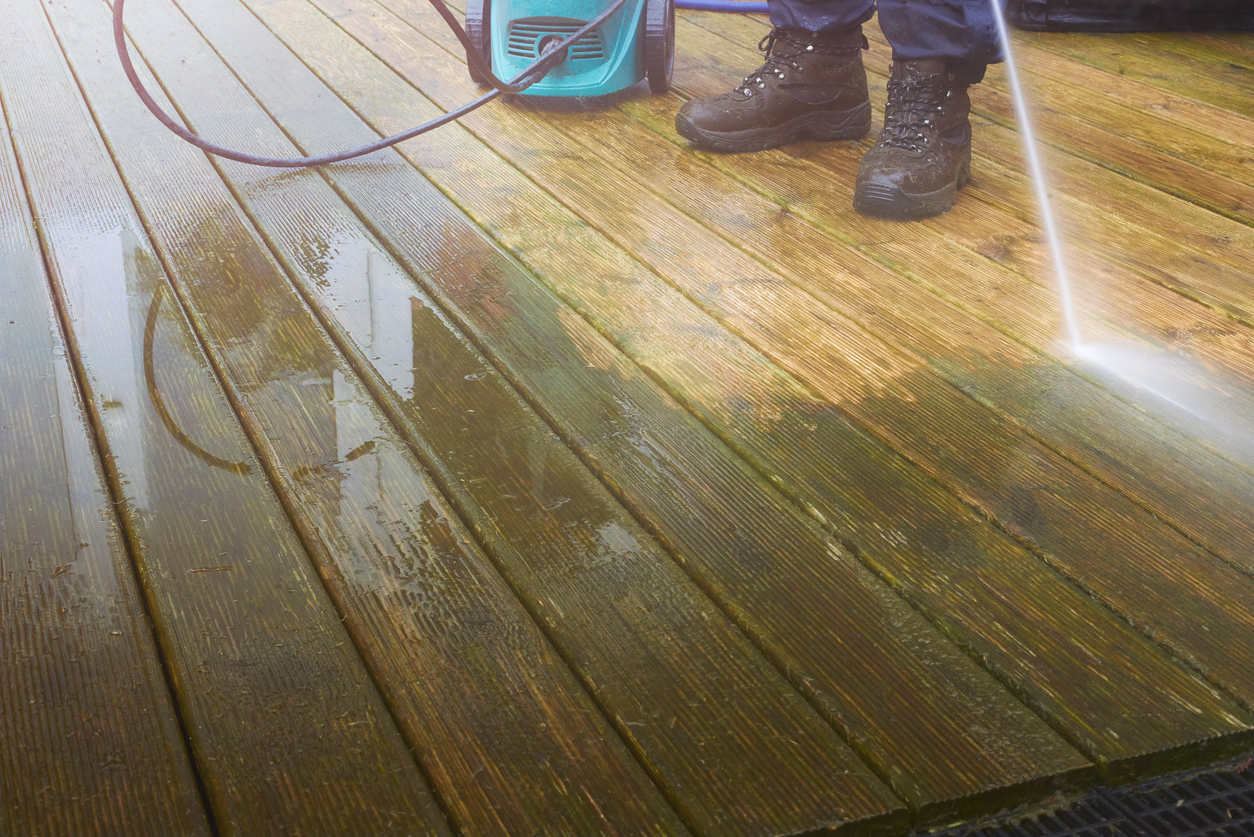
The powerful stream of water produced by a pressure washer is great for stripping paint from metal siding or stain from a wood deck. In fact, it’s advised to pressure wash a deck before applying a new coat of stain to properly prepare the surface. If you don’t want to chip, peel, or otherwise damage the stain or paint, avoid using a pressure washer on stained or painted surfaces.
RELATED: 11 Mistakes Most People Make With a Pressure Washer
8. Light Fixtures
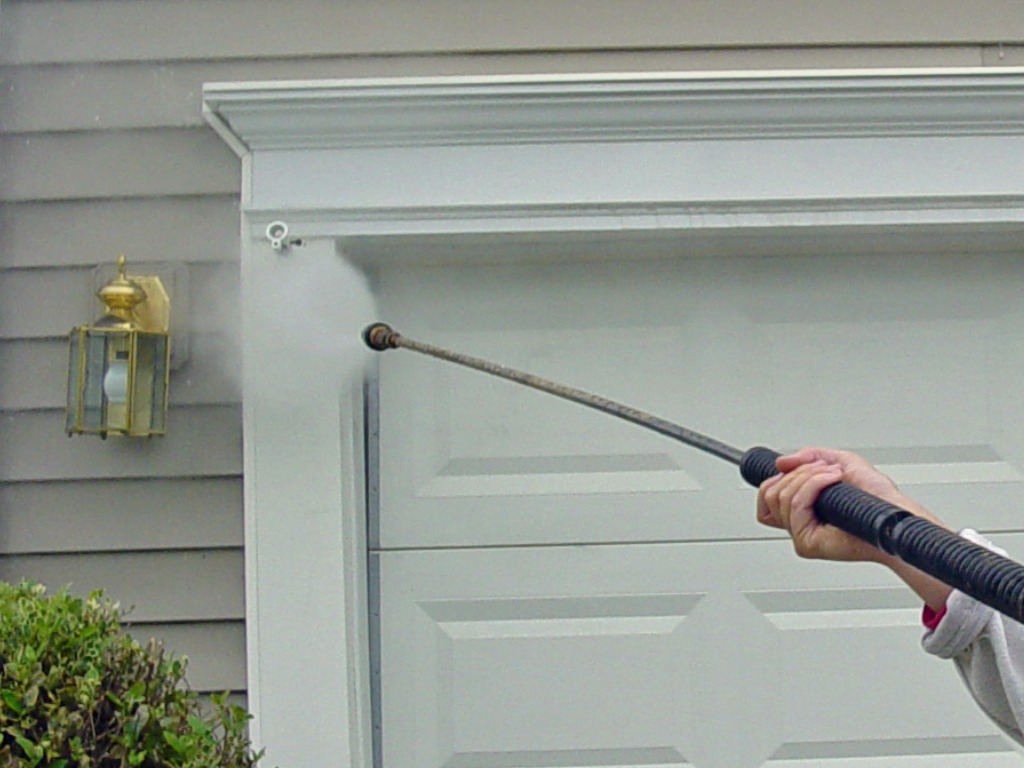
Outdoor light fixtures, like lamppost lights and porch lights, are made to resist rain, sleet, snow, ice, and high winds, but they aren’t designed to deal with the powerful horizontal stream of water that comes out of a pressure washer. The high-pressure flow of water can break any glass panes or bulbs and may completely remove the light fixture from its mount. If the force doesn’t destroy the fixture, the water may still seep in through the cracks and damage the internal electrical components.
9. Air Conditioners
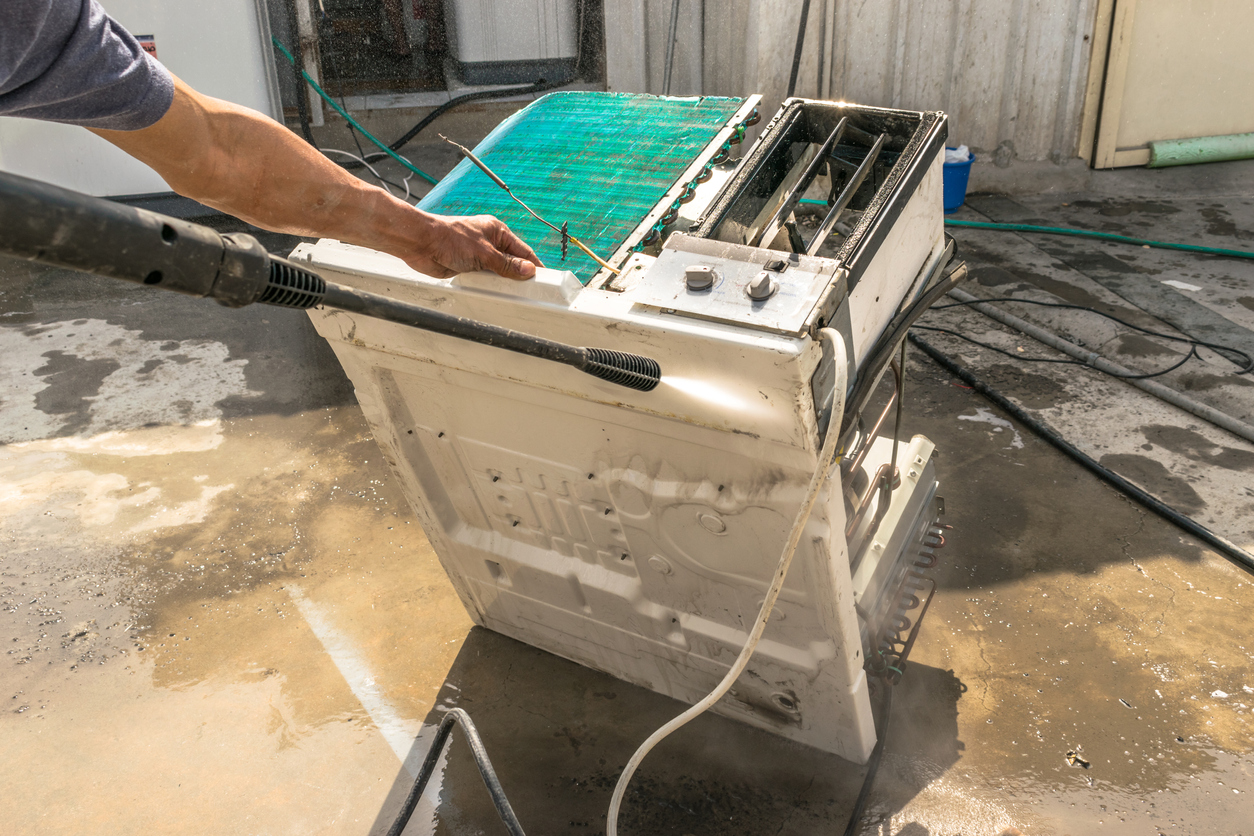
The metal box that houses an air conditioner helps to protect delicate metal fins that help dissipate the heat from the unit. While a pressure washer would quickly remove dirt and debris from the outside of the air conditioner, it also can bend or crush the fins, restricting airflow through the unit. Instead, use a garden hose or vacuum and a soft brush to gently clean between the fins, and save the pressure washer for the driveway.
RELATED: The Best Portable Air Conditioners We Tested This Year
10. Pools

While you might be tempted to clean off any algae or stains from your pool walls with a pressure washer, it’s not a good idea. Using too much pressure on a cement pool can damage the plaster shell, causing leaks. If you have a vinyl liner, even a small amount of pressure is enough to tear holes where the liner is brittle or cause the liner to pull away from cut areas, such as around skimmers and returns. In fact, even just draining your swimming pool can damage it. A better option is to keep the water in the pool and use chemical methods, brushes, or robotic pool cleaners to get your pool clean.
11. Solar Panels
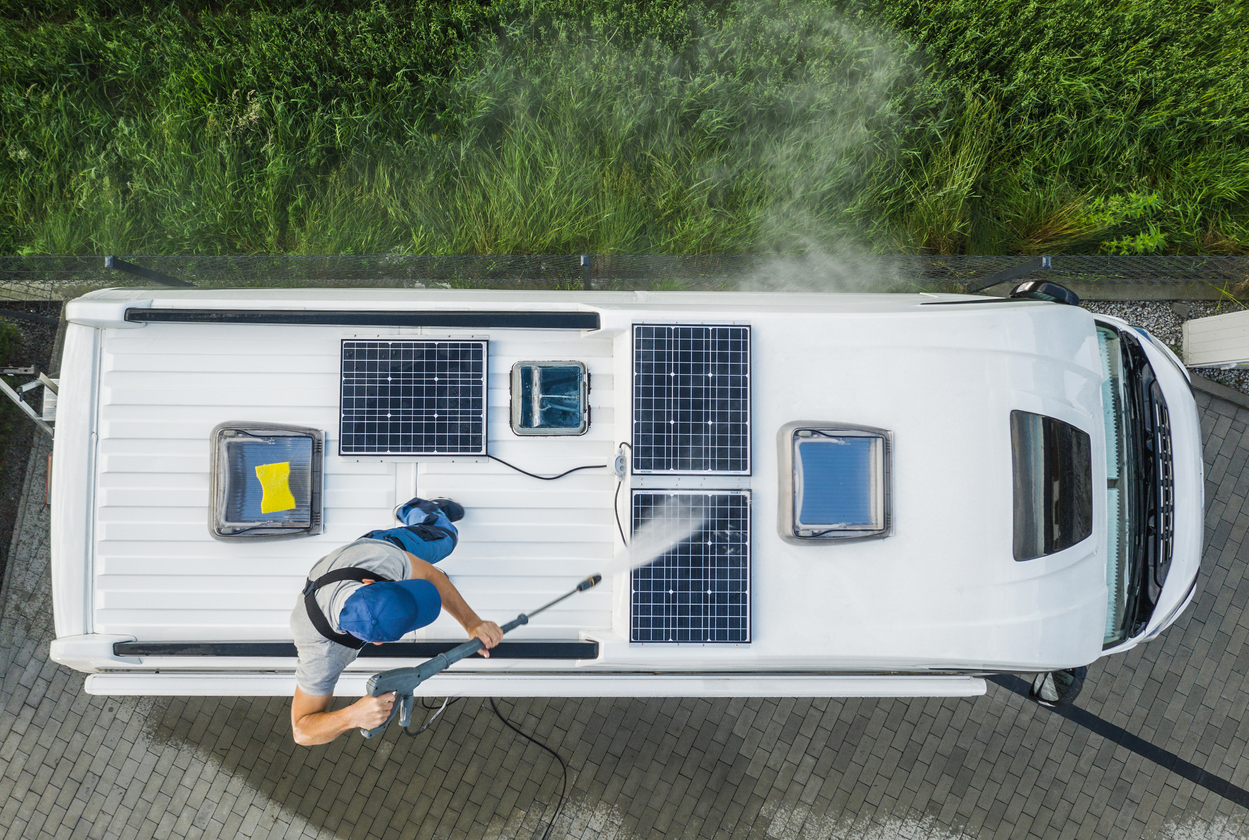
The long reach of the pressure washer would seemingly make it a great tool for washing dirt off solar panels. It’s not. While a pressure washer works well for cleaning other parts of your home’s exterior, it can easily damage the delicate components of a solar panel. The high-pressure water can destroy the protective outer layer of the metal frame or even cause the panes to detach from the frame, creating gaps that can allow moisture to get inside. In fact, power washing your solar panels could even void the manufacturer’s warranty.
RELATED: How to Clean Solar Panels
12. Fiber Cement Siding
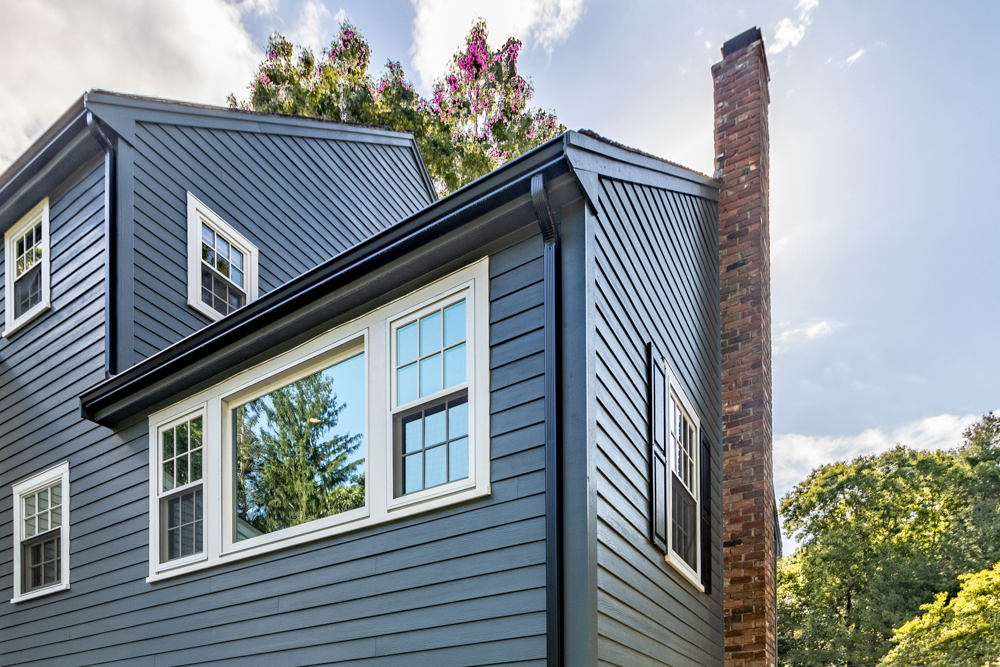
Fiber cement siding is one of the tougher siding options you can choose for a home. There are few things that can damage it, and power washing happens to be one of them. James Hardie, one of the top manufacturers of cement board siding, advises against power washing, as it can damage the surface. Instead, the company advises using a low-pressure hose and a medium bristle brush to clean Hardie board siding.
13. Patio Shades and Awnings
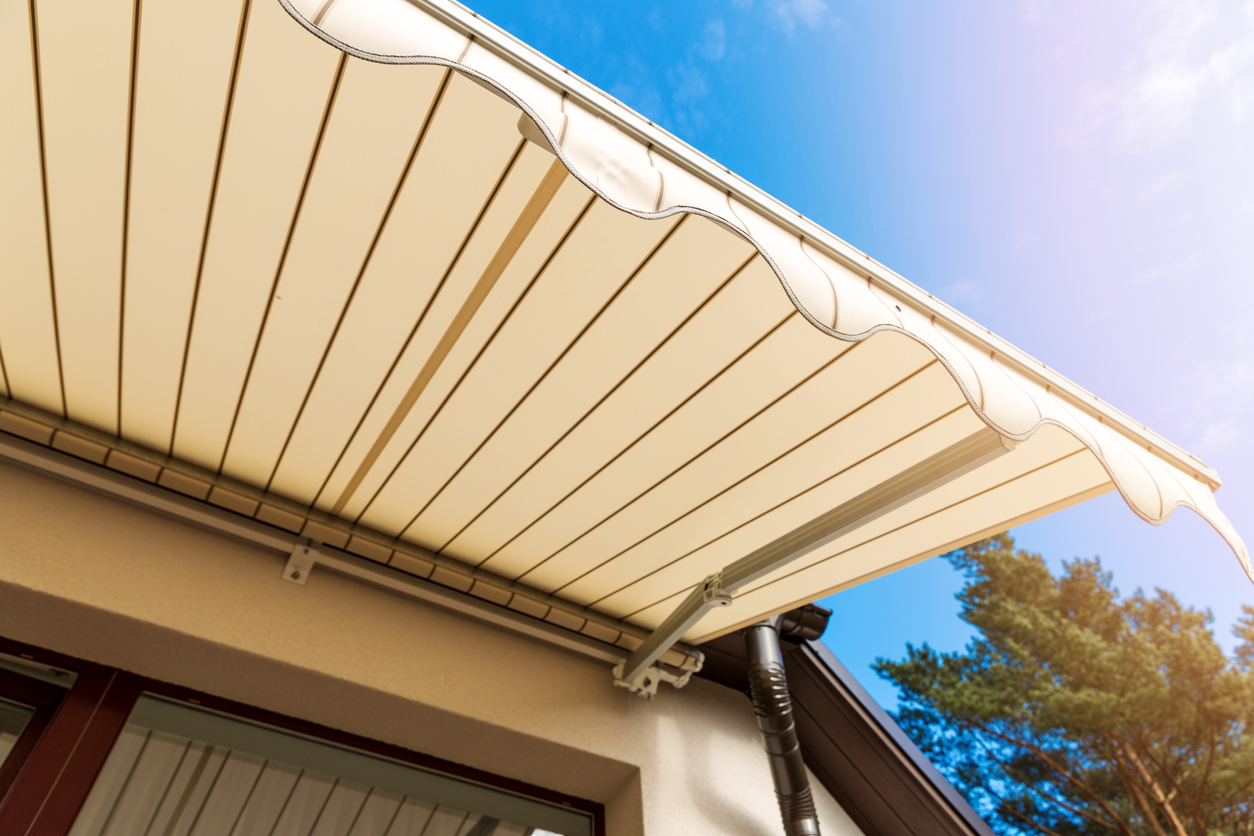
Yes, awnings and patio shades can withstand the elements, but they aren’t designed to endure high-pressure blasts of water. Using a pressure washer on a patio awning or shade can cause the fabric to tear. You also shouldn’t subject outdoor furniture to high-pressure water. Popular outdoor fabric manufacturers such as Sunbrella also advise against using a pressure washer to clean their products. Instead, use a mix of mild soap and bleach with a low-pressure garden hose to clean these outdoor fabrics.
RELATED: 24 Covered Deck Ideas for a Shaded Backyard Seating Area
14. Generators
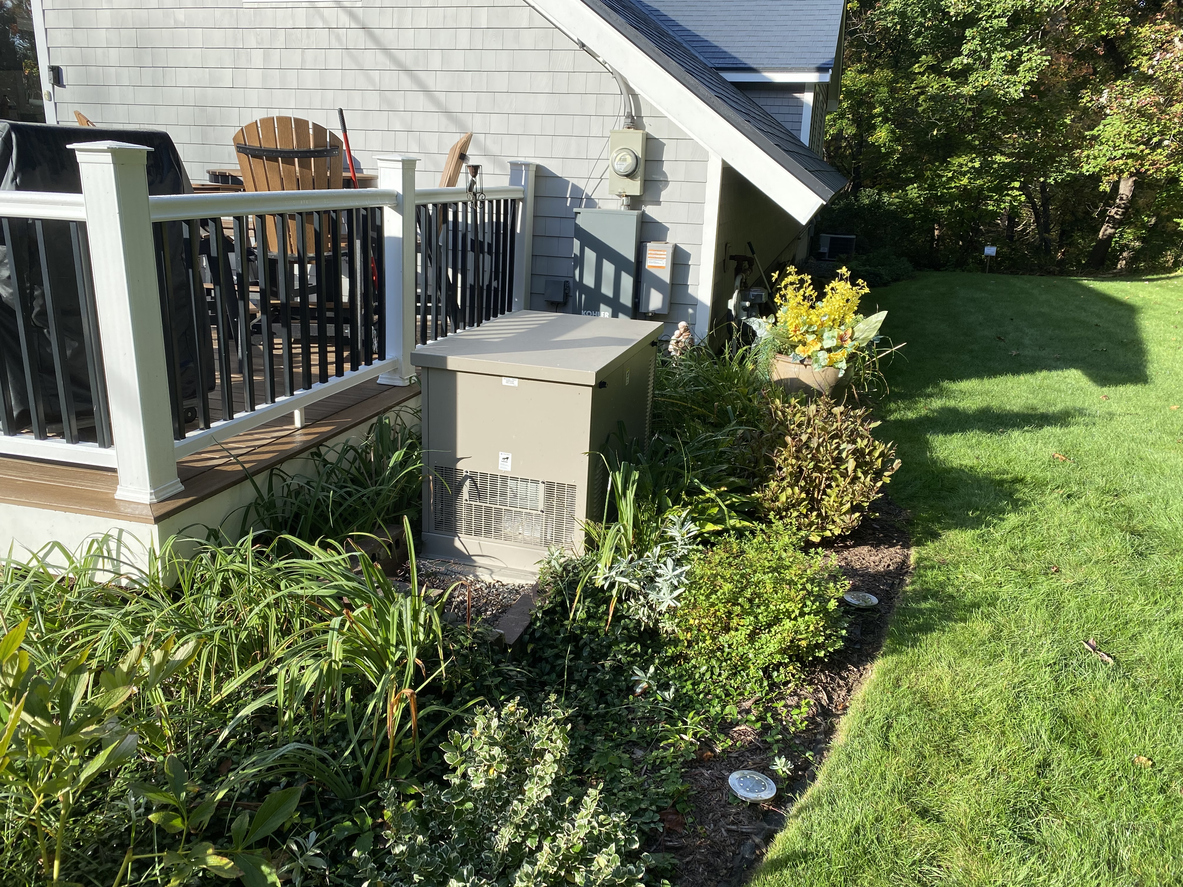
While generators are built to stand up to challenging weather conditions so you don’t have to go without power, they aren’t indestructible. Using a power washer to clean a generator can do significant damage. That’s because the high-pressure spray can cut through hoses, belts, and other components inside the generator. Instead of cleaning a generator with a power washer, use a compressor to blow off any dust and dirt, and then wipe it down with a rag and a little degreaser.

